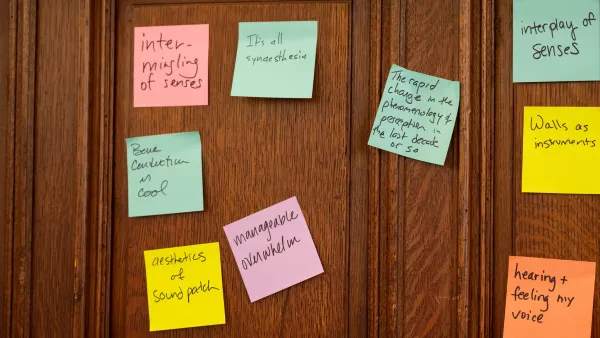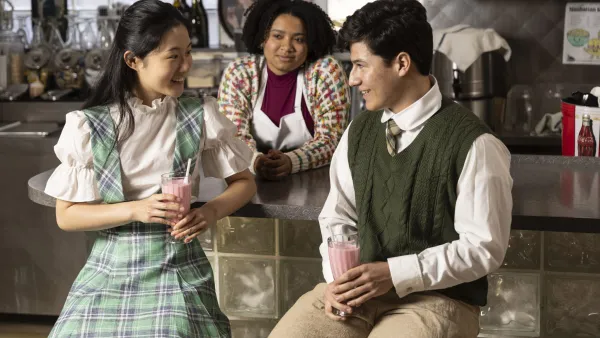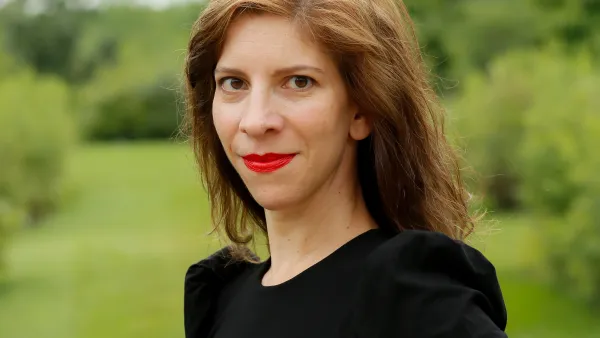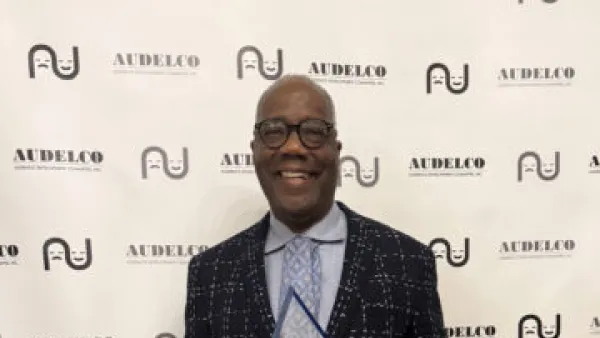
On October 25, 2024, the Performing Arts Department joined the Immersive Technology Collective[1] to sponsor Interpolations 2, an annual think tank devoted to exploring, envisioning, and extending performance and digital technologies in the twenty-first century. After attending Interpolations 1 at the University of Toronto in 2023 as a speaker, Dr. Elizabeth Hunter, Assistant Professor of Drama in PAD and Director of Fabula(b) Theatre + New Media lab, worked with the Immersive Technology Collective to host the second installation of this event at WashU. In a departure from conventional conference presentations, the two-part structure of Interpolations 2 fostered collaboration and connections among the many theatre and performance studies scholars who traveled to campus as well as the wider community of WashU.
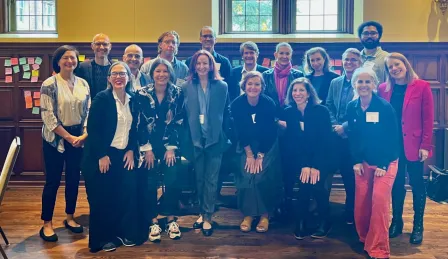
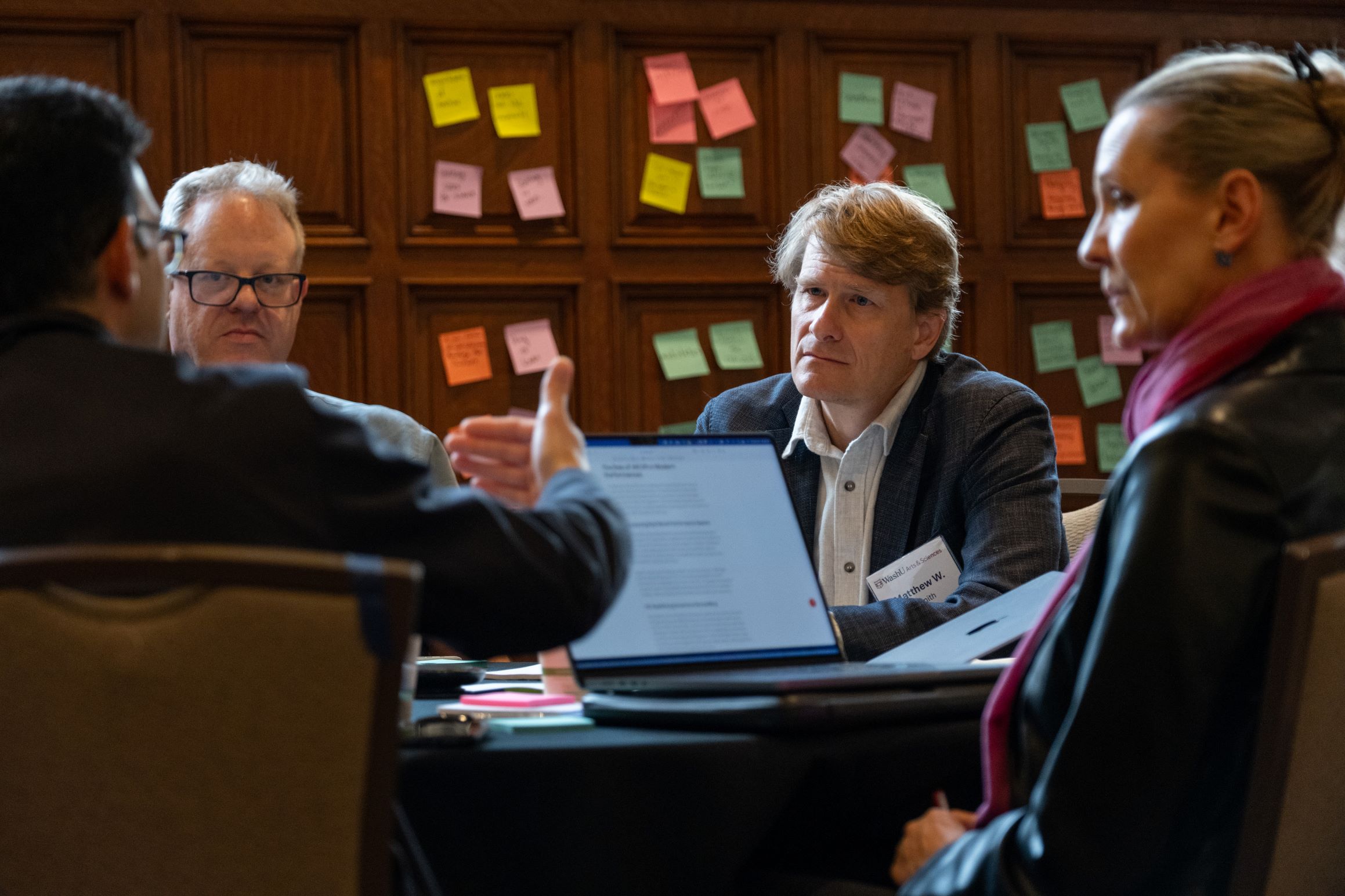
The second half of the day was open to the public, kicking off with "From Digital to Data & Beyond: The Future of Immersive Historiography," a keynote lecture by Dr. Sarah Bay-Cheng, Dean of the School of the Arts, Media, Performance & Design and Professor of Theatre, Performance Studies & Media at York University in Toronto. After a short break, audience members reconvened to hear a roundtable discussion among six visiting scholars, moderated by Dr. Hunter. Each participant contributed a provocation to spark conversation on the intersections of spatial computing and performance. After the roundtable, a coffee reception—and later, a dinner reception on campus— allowed participants and guests from across campus to share ideas and engage with the visiting scholars and one another.
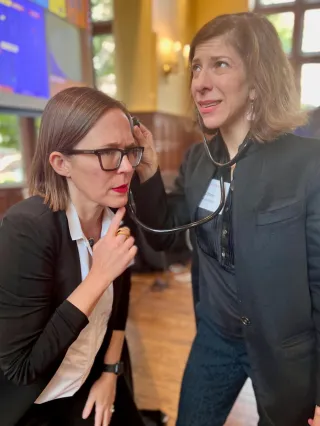
The success of the event was due in no small part to the logistics team of the Incubator for Transdisciplinary Futures, Sarah Carron and Julie Rivinus, as well as the MA students from PAD who helped with last-minute needs. Being part of the event in this way allowed students to learn from the dialogue between scholars in the field they are currently studying, form connections with potential future mentors, and even give elevator pitches for their Master’s theses.
Cameron Durbin, a Theatre and Performance Studies MA student, said of the event, "This was a great opportunity to not only listen and learn from professors from a wide variety of prestigious institutions but also to get one-on-one time with possible instructors and mentors at institutions we may attend for future education."
PAD and the Immersive Technology Collective are grateful to all the participants of Interpolations 2 who traveled from across campus and across the continent to join us for the day:
Sarah Bay-Cheng (York University in Toronto)
Gina Bloom (University of California, Davis)
Kevin Brown (University of Missouri)
Tarryn Chun (University of Notre Dame)
Doug Eacho (University of Toronto)
Zachariah Ezer (WashU)
Miriam Felton-Dansky (Bard College)
Sam Gill (Doris Duke Foundation)
Christopher Grobe (Johns Hopkins University)
Elinor Harrison (WashU)
Elizabeth Bradley Hunter (WashU)
Lindsay Brandon Hunter (SUNY Buffalo)
Laura Levin (York University in Toronto)
Robert Mark Morgan (WashU)
Elise Morrison (Yale University)
John Muse (University of Chicago)
Patricia Olynyk (WashU)
Jessica Rajko (Wayne State University)
Matthew Wilson Smith (Stanford University)
W. B. Worthen (Barnard College, Columbia University)
[1] A cluster of the Incubator for Transdisciplinary Futures at WashU
